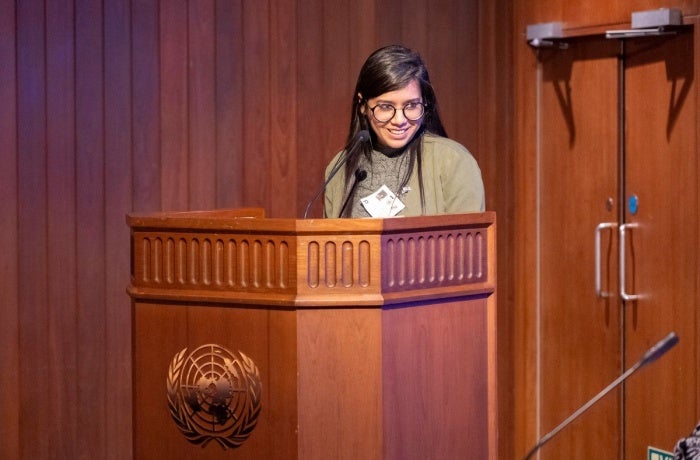Press release: UN Women report reveals devastating impact of the crisis in Gaza on women and girls
The conflict has already resulted in close to 493,000 women and girls’ being displaced from their homes in Gaza, and it has produced a growing number of widows.
[Also available in Arabic.]
New York — UN Women’s “Rapid assessment and humanitarian response in the Occupied Palestinian Territory” sheds light on the profound impact of the ongoing conflict on the people in Gaza, including on women and girls.
Following the 7 October attack by Hamas on Israel and the ensuing Israeli attacks on Gaza, UN Women has analysed the differentiated impact on women, men, boys, and girls, to ensure adequate responses to their needs.
UN Women estimates that the eruption of violence and destruction has already resulted in close to 493,000 women and girls’ being displaced from their homes in Gaza. Additionally, the violence has tragically resulted in a growing number of widows, as an estimated 900 women have become the heads of households following their male partners’ deaths.
If no ceasefire is achieved, these numbers will continue to rise.
Sarah Hendriks, UN Women Deputy Executive Director, ad interim, said: “UN Women has called for an immediate humanitarian ceasefire and unimpeded access for humanitarian aid, including food, water, fuel, and health supplies that are critical for the survival of women and girls in the Gaza Strip. It is imperative that we ensure immediate access to services for women and girls and ensure the prevention of gender-based violence. As the international community seeks to respond to this crisis, we must also wholeheartedly support and invest in women-led organizations, which are at the front-line of the humanitarian response, and promote the meaningful participation of women in humanitarian and political processes.”
The significant, largely displaced population of women and girls, and new female-headed households, have unique and urgent needs and vulnerabilities that must be recognized and addressed.
Currently, women and girls are seeking refuge in overcrowded shelters that lack essential provisions, such as food, water, and privacy, heightening protection risks.
Even prior to the current crisis, the situation in Gaza was desperate, with 97 per cent of men and 98 per cent of women fearing for their safety. Depression levels among women and men were high due to unemployment and a deep sense of hopelessness, and 54 per cent of Gaza’s men, the highest numbers across the Middle East, showed signs of anxiety and depression.
Since the onset of the current crisis, UN Women has been playing an important role in the coordination of the United Nations humanitarian response on gender equality, providing analysis of the differentiated impact of the war on women and girls, to ensure adequate responses. The Women’s Peace and Humanitarian Fund, which is a partnership between the United Nations, Member States, and civil society to support women-led and women’s rights organizations working to build peace and provide humanitarian response throughout the world, has also launched an emergency appeal for Palestine to support local women’s organizations.
UN Women remains present on the ground, ready to provide support and assistance.
Read the full “Rapid assessment and humanitarian response in the Occupied Palestinian Territory”.









